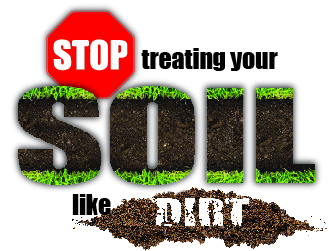- Categories:
- Landscaping

With Nick diLorenzo, Landscape Product Manager
Q: Why soil health?
A: Soil is the most important aspect of our industry. We plant in it, on it, put irrigation through it and even lights around it. Soil acts as an engineering medium that supports structures before and during construction. It is a habitat for soil microorganisms, a recycling system for nutrients and organic wastes, and a regulator of water for plants. Soil fertility supports plant growth and other beneficial processes. Having healthy soil allows industry professionals to deliver the green, growing turf and plants clients demands. And it’s not just about turf management – think about the importance of soil during construction to ensure proper installation.
Q: So, should Green Industry Professionals be rallying around soil health?
A: Absolutely! This is similar to our industry’s focus on Smart Water technology. As industry leaders it is our responsibility to adhere to practices that promote conservation. It’s no different with soil health. By improving soil health at the onset, we can reduce problems normally resolved by chemical applications like disease or insect infestation. Fertility is naturally occurring reducing fertilizer usage as well. Plants needs less water to survive in healthy soil, which is important as we continue to see drought across the U.S.
Q: How easy is it to get started in building better soils?
A: It all starts with a soil test. Soil is changing all the time, whether by nature or a pesticide app, and a soil test is the best way to see what is happening out of vision. In a soil test you are looking at 3 things - chemical, physical and biological analysis. Chemical refers to the acidity or pH levels of the soil. Physical is the texture which readers are probably most familiar with - the proportions of sand, silt and clay. This determines how water, air, nutrients and organisms moves in and through the soil. Biological tests microbes in the soil. Microbes are responsible for nutrient recycling, soil building, disease prevention. With that, you can find the right “prescription” to maximize soil health.
Q: Is there a benefit for the landscape pro?
A: First, there are cost savings associated with soil building for both the landscaper and the client. Not only are we creating lower costs through better efficiencies, but other revenue streams for the landscaper. Our research shows that more homeowners and businesses are looking for and willing to pay for organic options, and soil health is the foundation for that. Landscape pros can differentiate themselves from the competition with this strategy.
Q: How do you get started?
A: A good first step is getting in the habit of using soil tests. Most local supply houses work with a testing company that can get you responses in under a week. At Horizon we have a program called “Turf Triage” that helps analyze the results and makes a recommendation on products and practices to improve the soil profile. I think landscape professionals will really start seeing an improvement to what’s on top when they start paying attention to what’s underneath.